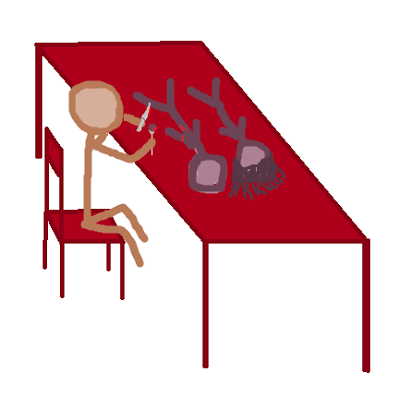Now, was Jesus really a threat to the safety of the Jewish people?
Roman occupied Israel was a politically volatile place. As soon as Israel was officially absorbed by the Roman Empire around the year 6 AD, the first significant uprising took place, led by Judas of Galilee. Apparently it was ok to be a semi-independent kingdom, but once people had to pay taxes to Rome, there was an immediate movement to rebel against the Roman Empire and expel it from the Holy Land. This movement was called Zealotry.
A second insurrection started in 46 AD, once again, in Galilee. This one was called the Jacob and Simon uprising. It lasted two years before the Romans were able to squash it and execute the brothers, Jacob and Simon.

It was between these two rebellions that Jesus was wandering around performing miracles on the Sabbath and preaching all sorts of radical ideas like “love thy neighbor as thyself,” and “it’s more important to forgive than follow the law.” Hell, Jesus’ apostles didn’t even wash their hands. This sort of behavior was clearly leading the people toward revolt! In John 11:47-53 we learn that military action by the Romans was foremost in the minds of the Jewish leadership when they put together their plan to have Jesus executed. They didn’t want him to incite the people to rebellion because they were smart enough to know what would happen to the Jews in open combat against the Roman Empire. Eventually millions of Jews would be killed in rebellions against the Roman Empire, and the entire race was almost wiped out. The Jewish leaders were smart to want to avoid the destruction of their people, and they saw Jesus as a direct threat to the survival of their race.
With the gift of hindsight we can tell that it didn’t do that much good to get rid of Jesus, but it may have delayed the inevitable. In 66 AD, tensions between the Jews, the Greeks, and the Romans led to major unrest in Jerusalem and the Romans sent in the troops. This served to organize the rebellious spirit and kicked off seven years of combat action. The Jews did fairly well for themselves and had several surprisingly successful victories.
However, the Jews were unable to last forever against the might of the Roman Empire and after four years of fighting, the bulk of the Jewish resistance was besieged in Jerusalem. It took the Romans seven months to break Jerusalem, and I think it would have taken much longer if the Jews inside hadn’t been fighting among themselves. For example: a group of zealots in the city set fire to the dry food stores to entice the defenders to fight against the Romans, rather than starve. Yeah. That was probably a bad move.
Now we finally get to Masada. It was a roman fortress that was taken by a group of Jewish rebels called the Sicarii in 66 AD. In 70 AD, this group was joined by other Sicarii who managed to flee the destruction of Jerusalem. Masada was an imposing fortress and there was a lot of other work to do in the Holy Land, destroying the pockets of resistance that weren’t wiped out at Jerusalem. It wasn’t until 73 AD that the Roman governor got around to laying siege to Masada.
Masada is built on an isolated plateau. The cliffs on the East side are about 1,300 feet high, but the West side only has a 300 foot drop: child’s play for the Roman legionnaires. A force of 15,000 converged on Masada to lay siege. These fellows didn’t just sit there and try to starve out the defenders, oh no. They spent three months building a ramp to the top of the plateau. Once the ramp was completed, the Romans broke through the wall and found multiple buildings in flames and only two women and five children alive. Everyone else had either committed suicide or killed each other. It was a nasty mess.
Later uprisings in 117 AD and 132 AD resulted in an almost complete genocide of the Jews and the renaming of the region from Judea to Palaestina.
Morals: Don’t mess with the Romans, and not everyone wants a war.
Ref: John 11:47-53
Note: Because the Americans lanched a preemptive strike against Iraq in 2003 to "save lives," they shouldn't have a problem with the Jewish leadership launching a preemptive strike against Jesus to save lives.


















































.jpg)
